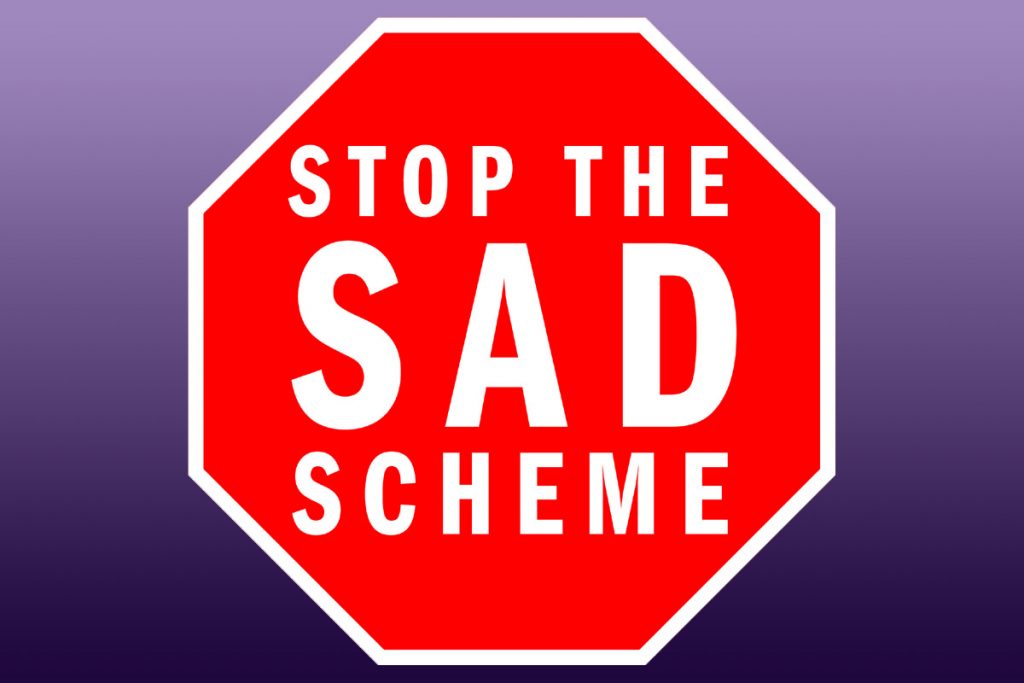Court Rejects Schedule A Claims Against Sellers of Compatible Parts/Accessories (Cross-Post)
[Cross posted with permission from Prof. Rebecca Tushnet’s Blog.]
 When they tell you that Schedule A cases are against counterfeiters, keep in mind that trademark owners are willing to call pretty much anything “counterfeiting,” including ads for compatible parts. Here, the court looks into the allegations—assisted by defendants who showed up—and concludes that they’re implausible as to the fighting defendants (those who weren’t dismissed due to settlement—which this result suggests may have been unnecessary). What about the rest? The court allows them to show up on their own and repeat the prevailing defendants’ arguments—which probably won’t do much to curtail the practice absent some big fee shifts.
When they tell you that Schedule A cases are against counterfeiters, keep in mind that trademark owners are willing to call pretty much anything “counterfeiting,” including ads for compatible parts. Here, the court looks into the allegations—assisted by defendants who showed up—and concludes that they’re implausible as to the fighting defendants (those who weren’t dismissed due to settlement—which this result suggests may have been unnecessary). What about the rest? The court allows them to show up on their own and repeat the prevailing defendants’ arguments—which probably won’t do much to curtail the practice absent some big fee shifts.
Defendants sell parts and accessories for above-ground pools via internet storefronts on third-party platforms, including Amazon.com, where their listings mention Bestway as a maker of equipment with which their products are compatible. Each of defendants’ listings “states in some way that their products are compatible with Bestway pools or meant for use in Bestway pools,” e.g., one listing states that its cup holders are “[p]erfect for above ground pools of brands such as Bestway, Intex, Funsicle, Summer Waves … Coleman, etc.,” while another defendant’s listings state that its pool plunger valve is “for Intex/Bestway/Coleman Pool[s]” and its pool pipe holder is “for Intex Bestway Coleman Above Ground Pool,” and another says that its pool hose adapter is “for Bestway for Coleman for Intex” and its joint hose connector is “for Intex Bestway Coleman.”
As a general matter, “it is not trademark infringement for a manufacturer of parts to truthfully inform buyers that its parts will fit the trademarked product of another manufacturer.” However, “the exact language of the advertisement will be carefully scrutinized” to ensure that it is not “confusing as to source, sponsorship, affiliation or approval.” Here, the listings “plainly used the mark ‘Bestway’ not for any source-identification function as to their own products, but only to indicate that their parts and accessories are compatible with Bestway pools.” Each listing referred not only to Bestway but also to at least one other manufacturer of above-ground pools, such as Intex or Coleman.
Defendants pointed to an earlier Schedule A case, Roku Inc. v. Individuals, Corps., LLCs, Partnerships, & Unincorporated Associations Identified on Schedule A Hereto, No. 22-CV-0850, 2022 WL 1598208, at *4 (S.D.N.Y. May 20, 2022), which concluded that the holder of the “Roku” trademark had not shown a likelihood of confusion based only on an Amazon listing of a remote that was listed as “compatible” with Roku TVs, reasoning in part that the fact that the remote had a “Roku channel” button did not communicate sponsorship or a common origin with Roku-manufactured products when there were also buttons for “Netflix, Hulu, [and] Disney+.” It was clear in context that the defendant’s use of the term “Roku” in its listing referred to “legitimate Roku products,” not to defendant’s own products. The same was true here. There were no non-conclusory allegations of actual confusion or intent to palm off. And, though “[a] superficial glance at the other likelihood of confusion factors might seem to suggest that they favor Plaintiff, … any such assessment would fail to account for context and common sense.” The mark was used “in its simple textual form,” along with the marks of competing above-ground pool manufacturers, “to inform consumers that their parts will fit the pools of those manufacturers.” If “Bestway” had been in larger font than the rest of the text or singled out in some other way, the result might have been different.
[This is nominative fair use without the label, deployed as implementation of Twiqbal. If all we have to limit trademark rights is context, then it’s good for courts to take context seriously. But the Seventh Circuit has a very distinct attitude towards common sense.]
Here, the mention of other competitors signalled a lack of source- or sponsorship-indicating use, suggesting that “Bestway” was being used “not to indicate sponsorship but only to identify Plaintiff’s pools as an example of one kind of pool that Plaintiff’s parts and accessories will fit.” If these listings could infringe,
it is hard to see how anyone in Defendants’ position could sell replacement parts without risking a trademark infringement suit, short of offering an explicit disclaimer—i.e., “These parts are not manufactured by Bestway, Intex, or Coleman.” Plaintiff has cited no authority requiring such language in circumstances such as these, nor does the Court see anything plausibly misleading or confusing in Defendant’s listings that might require some such corrective disclosure.
The court didn’t reach “fair use” arguments as such because confusion was implausible. Two other defendants filed motions for summary judgment on similar grounds, but the parties hadn’t yet had an opportunity for discovery; those defendants could now refile. (If the grounds were similar, what more could discovery have revealed that would change the content of the listings over which plaintiff brought suit?)
Case Citation: Bestway Inflatables & Material Corp. v. Individuals, Corporations, Limited Liability Companies, Partnerships, & Unincorporated Associations Identified on Schedule A Hereto, 2025 WL 2380699, No. 24 C 11697 (N.D. Ill. Aug. 15, 2025). The CourtListener page.
#StopTheSADScheme
Prior Blog Posts on the SAD Scheme
- Judge Kness: the SAD Scheme “Should No Longer Be Perpetuated in Its Present Form”–Eicher Motors v. Schedule A Defendants
- SAD Scheme Lawyers Sanctioned for Judge-Shopping–Dongguan Deego v. Schedule A
- Judge Ranjan Cracks Down on SAD Scheme Cases
- Because the SAD Scheme Disregards Due Process, Errors Inevitably Ensue–Modlily v. Funlingo
- SAD Scheme-Style Case Falls Apart When the Defendant Appears in Court—King Spider v. Pandabuy
- Serial Copyright Plaintiff Lacks Standing to Enforce Third-Party Copyrights–Viral DRM v 7News
- Another N.D. Ill. Judge Balks at SAD Scheme Joinder–Zaful v. Schedule A Defendants
- Judge Rejects SAD Scheme Joinder–Toyota v. Schedule A Defendants
- Another Judge Balks at SAD Scheme Joinder–Xie v. Annex A
- Will Judges Become More Skeptical of Joinder in SAD Scheme Cases?–Dongguan Juyuan v. Schedule A
- SAD Scheme Leads to Another Massively Disproportionate Asset Freeze–Powell v. Schedule A
- Misjoinder Dooms SAD Scheme Patent Case–Wang v. Schedule A Defendants
- Judge Hammers SEC for Lying to Get an Ex Parte TRO–SEC v. Digital Licensing
- Judge Reconsiders SAD Scheme Ruling Against Online Marketplaces–Squishmallows v. Alibaba
- N.D. Cal. Judge Pushes Back on Copyright SAD Scheme Cases–Viral DRM v. YouTube Schedule A Defendants
- A Judge Enumerates a SAD Scheme Plaintiff’s Multiple Abuses, But Still Won’t Award Sanctions–Jiangsu Huari Webbing Leather v. Schedule A Defendants
- Why Online Marketplaces Don’t Do More to Combat the SAD Scheme–Squishmallows v. Alibaba
- SAD Scheme Cases Are Always Troubling–Betty’s Best v. Schedule A Defendants
- Judge Pushes Back on SAD Scheme Sealing Requests
- Roblox Sanctioned for SAD Scheme Abuse–Roblox v. Schedule A Defendants
- Now Available: the Published Version of My SAD Scheme Article
- In a SAD Scheme Case, Court Rejects Injunction Over “Emoji” Trademark
- Schedule A (SAD Scheme) Plaintiff Sanctioned for “Fraud on the Court”–Xped v. Respect the Look
- My Comments to the USPTO About the SAD Scheme and Anticounterfeiting/Antipiracy Efforts
- My New Article on Abusive “Schedule A” IP Lawsuits Will Likely Leave You Angry
- If the Word “Emoji” is a Protectable Trademark, What Happens Next?–Emoji GmbH v. Schedule A Defendants
- My Declaration Identifying Emoji Co. GmbH as a Possible Trademark Troll


